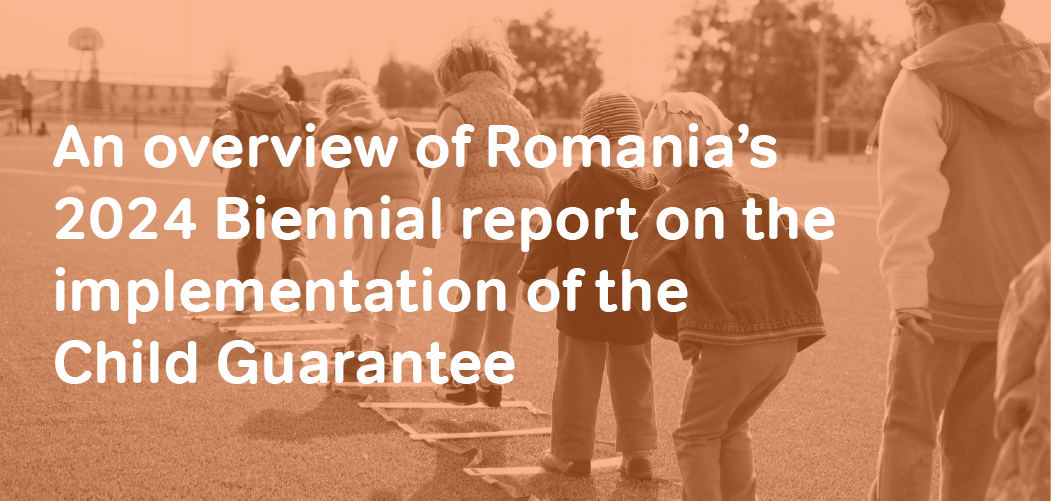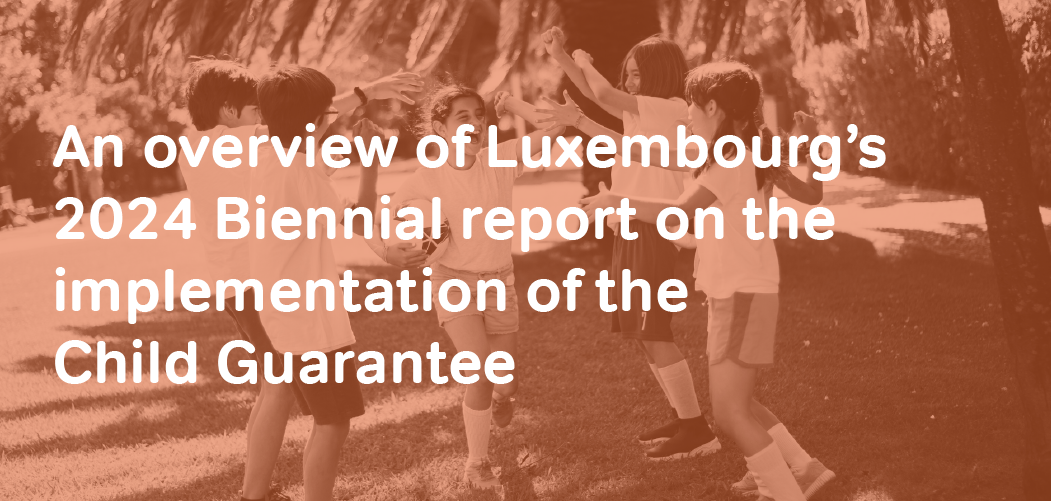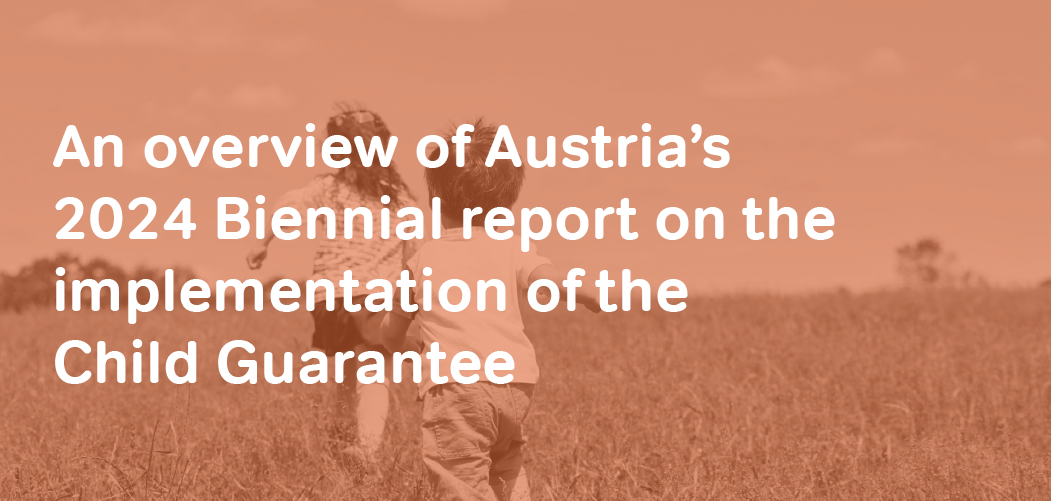Romania’s 2024 Biennial report on the implementation of the Child Guarantee – an overview
Three years after the adoption of the European Child Guarantee, EU Member States are releasing the first report on its implementation. The reports offer an overview of the context, target groups, and services established to execute the European Child Guarantee’s National Action Plans. Additionally, they include sections covering indicators, financing details, and insights and conclusions gleaned from the implementation process.
The Romanian Government submitted its 2024 Biennial report on the implementation of the Child Guarantee in March 2024.
The report focuses on:
- Early education services: Constructing and operating 110 nurseries and 358 kindergartens.
- Education and school-based activities: Initiatives like the Early Warning Mechanism and "Second Chance" programs to provide quality education to at-risk students. Financial aid and school supply packages are provided to high school students to allow them to continue and complete their studies.
- Healthy meal each school day: The National Program "Healthy Meal" (NPHM), offers free daily meals, crucial for disadvantaged students.
- Healthcare: Modernising 3,000 primary healthcare facilities. Integrated Community Centers under the National Recovery and Resilience Program for comprehensive healthcare, with a focus on rural areas. Education programmes promoting healthy lifestyles.
- Healthy nutrition: School programs to ensure access to nutritious meals for preschoolers and students.
- Adequate housing: Interventions in informal settlements guided by the National Housing Strategy, supported by various funds.
Check out the rest of the 2024 Biennial reports on the implementation of the Child Guarantee!
Eurochild and its members will continue to call on Member States to release their biennial reports and work to ensure the Child Guarantee National Action Plans helps end child poverty.
This summary provides key highlights from the Biennial report on the Child Guarantee implementation in Romania published in March 2024. It is not exhaustive or evaluative.





